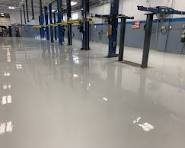When homeowners and designers search for flooring that blends style, durability, and functionality, the quartz floor often emerges as a top choice. Quartz is not only known for its strength but also for its ability to bring a timeless, elegant look to both residential and commercial interiors. From kitchens and living rooms to showrooms and office spaces, quartz flooring has become a versatile surface solution.
What is a Quartz Floor?
A quartz floor is made from a combination of natural quartz crystals, high-quality resins, and pigments. This blend creates a surface that is exceptionally strong, non-porous, and visually appealing. Unlike traditional stone floors, quartz flooring can be customized in terms of color, texture, and finish, making it a perfect fit for modern design needs.
Key Benefits of Quartz Flooring
1. Exceptional Durability
Quartz ranks high on the Mohs scale of hardness, making quartz floors resistant to scratches, chips, and cracks. This makes them ideal for high-traffic areas like hallways, kitchens, and offices.
2. Low Maintenance
Unlike natural stone, quartz flooring does not require sealing or special treatments. A simple routine of sweeping and mopping is enough to keep the floor looking polished.
3. Aesthetic Versatility
Quartz floors come in a wide range of colors and finishes, from sleek monochrome designs to elegant patterns that mimic marble or granite. This flexibility allows designers to create both luxurious and minimalist spaces.
4. Stain and Moisture Resistance
Because quartz flooring is non-porous, it naturally resists spills, stains, and moisture infiltration. This feature makes it a hygienic choice for kitchens, bathrooms, and commercial settings where cleanliness is a priority.
5. Eco-Friendly Option
Many quartz floors are made with recycled materials and sustainable manufacturing processes, making them a green flooring solution for eco-conscious homeowners.
Popular Applications of Quartz Floors
- Residential Interiors: Living rooms, kitchens, bathrooms, and basements benefit from the durability and elegance of quartz.
- Commercial Spaces: Offices, hotels, restaurants, and retail stores use quartz flooring for its long-lasting beauty and low upkeep.
- Healthcare Facilities: With its resistance to bacteria and stains, quartz is increasingly used in clinics and hospitals.
Quartz Floor vs. Other Flooring Options
| Feature | Quartz Floor | Marble/Granite | Ceramic Tile | Hardwood |
|---|---|---|---|---|
| Durability | Very High | High | Moderate | Moderate |
| Maintenance | Low | Medium (requires sealing) | Low | High |
| Customization | Wide range of colors | Limited to natural tones | Limited | Few variations |
| Water Resistance | Excellent | Moderate | Excellent | Poor |
| Cost | Moderate–High | High | Moderate | High |
This comparison shows why quartz flooring often stands out as a balanced choice between luxury and practicality.
Care and Maintenance Tips for Quartz Flooring
To keep a quartz floor in pristine condition:
- Sweep or vacuum regularly to remove dirt and debris.
- Use a damp mop with mild detergent for deeper cleaning.
- Avoid harsh chemicals or abrasive scrubbers that may dull the finish.
- Place mats in entryways to minimize tracked-in grit.
Is Quartz Flooring Right for You?
If you are looking for a flooring option that combines durability, elegance, and easy maintenance, a quartz floor is an investment worth considering. Its adaptability to different styles, along with its resistance to wear and tear, makes it suitable for both modern and traditional interiors.
Conclusion
A quartz floor is more than just a practical surface—it is a design element that enhances the beauty and functionality of any space. Whether you prioritize strength, hygiene, or visual appeal, quartz flooring delivers on all fronts. For homeowners, architects, and designers alike, quartz remains a premium flooring solution that will stand the test of time.
